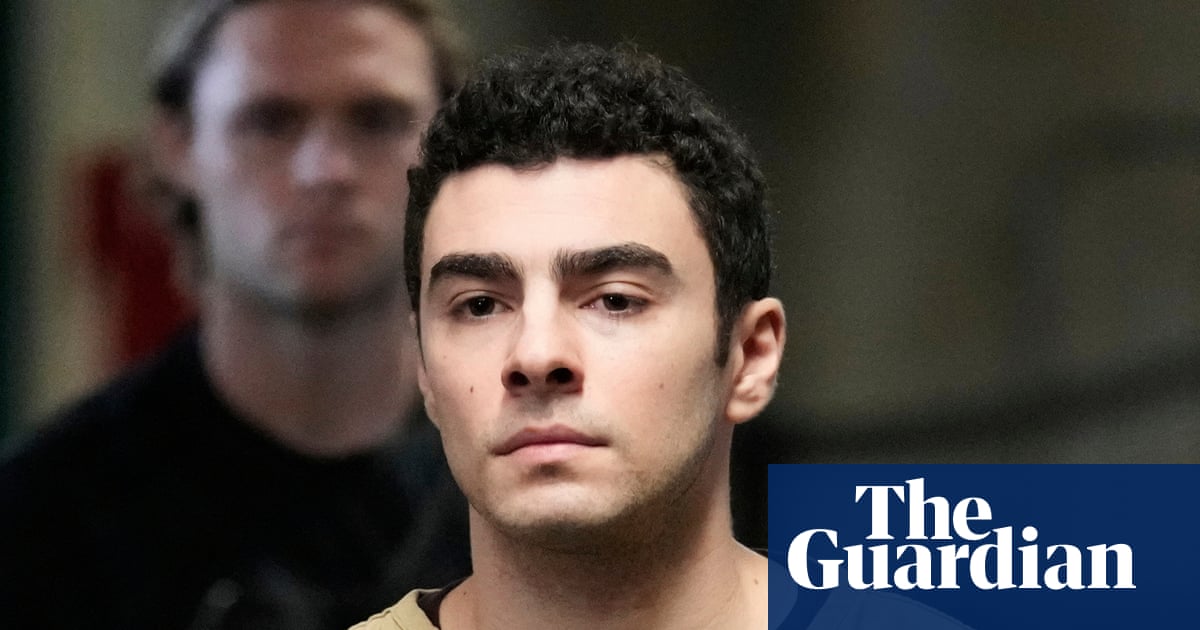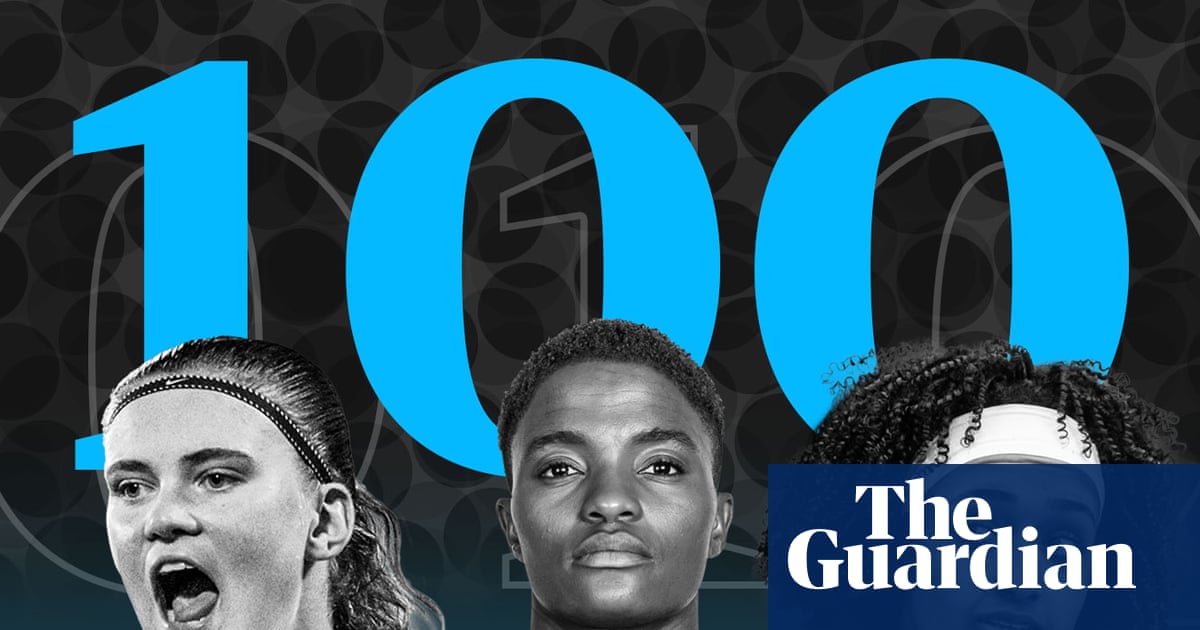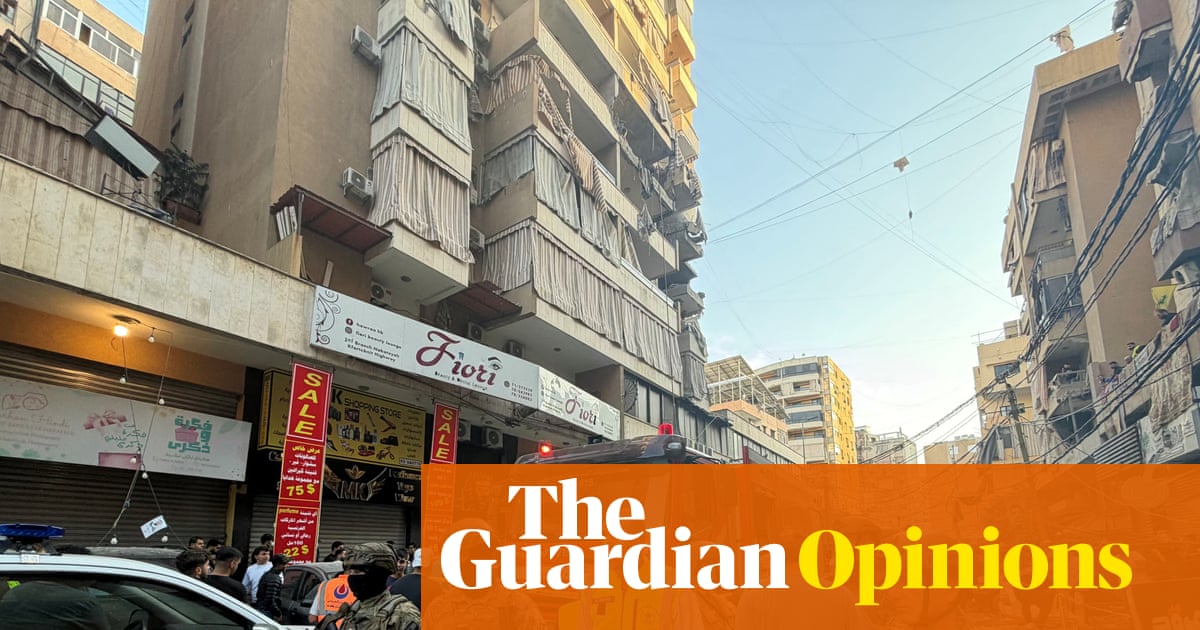After 53 days without experiencing the tension, physicality and adrenaline of competing at the highest level of his sport, Jack Draper returned to competition at the US Open with a bruising first-round win that illustrated the challenge of entering a grand slam tournament with suboptimal preparation.
Draper, the fifth seed, dragged himself into the second round with a tough 6-4, 7-5, 6-7 (7), 6-2 win against the qualifier Federico Agustin Gómez. However, he also struggled physically as the match extended in the warm conditions and he appeared to throw up during the match.
“I wasn’t too sure if I was going to make it this year, we did a great job with the team since Wimbledon to make it back on court,” Draper said. “It wasn’t my finest performance but credit to my opponent, he made it difficult. I’m looking forward to getting better, hopefully progressing.”
Having been forced to withdraw from a series of tournaments after his painful second-round defeat at Wimbledon with bone bruising on his left arm, Draper’s first task on his return was a 28-year-old Argentinian armed with a big serve and nuclear forehand.
Gomez’s weapons can be dangerous when allowed sufficient time on the ball but he is also a volatile player with mediocre movement and shot selection, which is reflected in his ranking of No 203. He immediately sent Draper a warning shot, a crushing 141mph service winner in the third point of the match.
As he established a 6-4, 5-4 lead Draper appeared to be cruising towards a comfortable opening win, before the complexion of the match shifted. He played a loose service game to lose his serve at 5-4 for the first time in the match. Then, in the third set, he appeared to be struggling physically as he trailed 1-4. Although he retrieved the break, during his service game at 4-5 he appeared to vomit before his service motion. He then wiped the court with a towel.
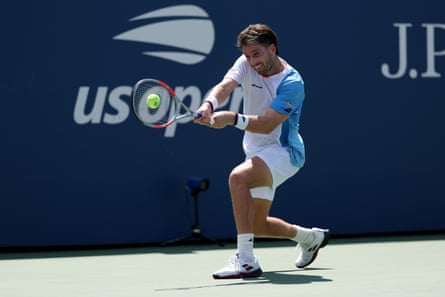
Draper fought hard to force a tiebreak and pulled himself to match point at 6-5 with the Argentinian serving. With the match on the line, the moment inspired Gómez’s best level as his booming forehands found lines all over the court. After saving Draper’s match point with a 99mph forehand winner, he spectacularly forced a fourth set.
By the beginning of that set Draper’s serve speeds had drastically reduced, his first serve often barely clearing 105mph, and he was tentative with his forehand, potentially a reflection of his caution with his left arm. But his fighting spirit is eternal regardless of how he feels on the court. After three difficult hours in Louis Armstrong Stadium, the British No 1 emerged with his first victory since Wimbledon.
Many tougher challenges await as he tries to solidify his status at the top of the game. For now, the most important thing is that he gave himself a chance to grow into the tournament by ending his afternoon with a win. “I’m not putting too much expectations on myself,” Draper said. “I’ve put in the work. I know if I can get that level back, I’m going to be tough to beat.”
Cameron Norrie, meanwhile, maintained his positive run of form at grand slam tournaments by reaching the second round after his opponent Sebastian Korda retired while Norrie led 7-5, 6-4.
after newsletter promotion
Things have not been so easy for Norrie since his excellent run to the Wimbledon quarter-finals last month. Despite his confidence within his game, he has struggled physically in the heat throughout the North American hard-court swing. During his opening match in Cincinnati two weeks ago, he could barely move by the second set of his straight‑sets defeat against Roberto Bautista Agut. A week of training in Fort Worth, Texas, at his former college, Texas Christian University, appears to have helped. Norrie thrived in tough 29C conditions on an exposed Court 17 and it was Korda who struggled physically, retiring eventually after two sets due to a back issue.
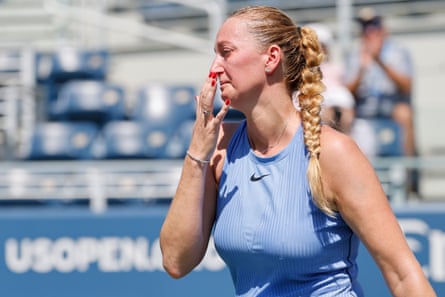
In the women’s draw, an emotional Petra Kvitova said farewell to professional tennis as she fell 6-1, 6-0 in 52 minutes in defeat against Diane Parry of France. A two-time Wimbledon champion, Kvitova had announced that she would retire after the US Open. At 35 years old, the Czech ends her career as one of the greatest players of her generation with two Wimbledon titles and 31 WTA titles.
“I didn’t expect myself [emotional], but since I wake up this morning, I felt it,” Kvitova said. “I felt it would be not good. I couldn’t eat. I was really nervous. But in different way, I would say. I couldn’t move, I couldn’t swing, I couldn’t do anything. It was really difficult.”

 3 months ago
43
3 months ago
43
